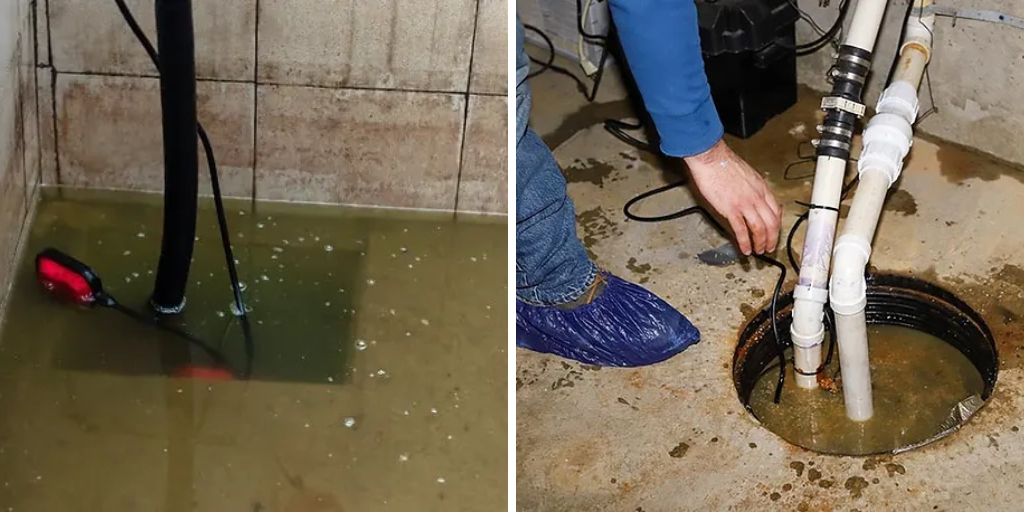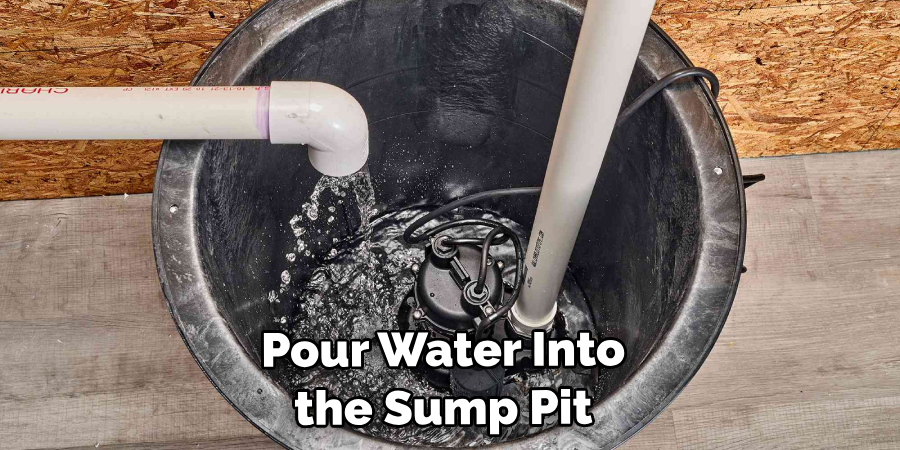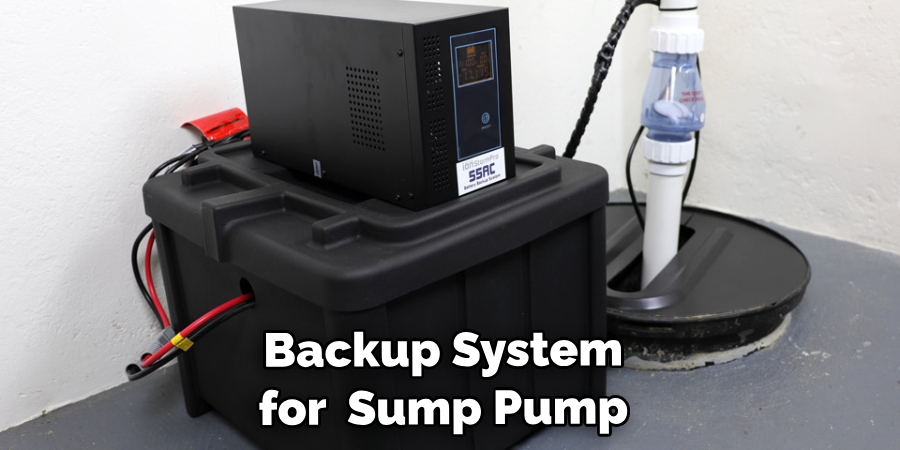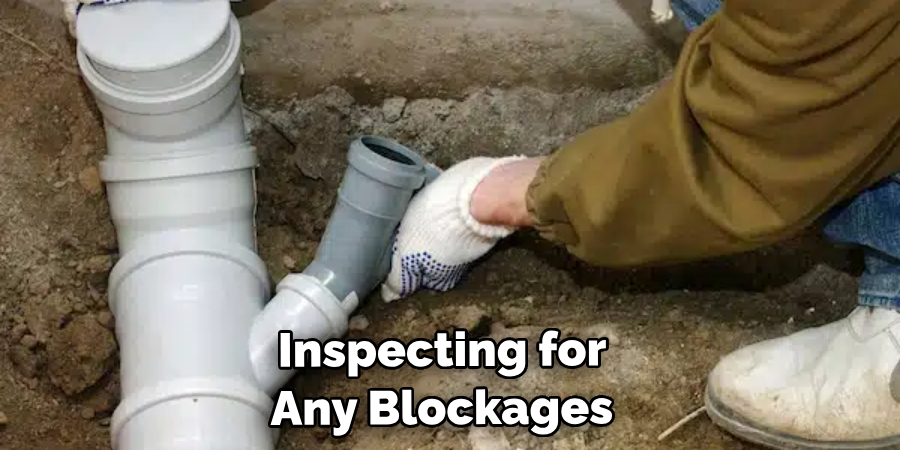If you have ever had the unfortunate experience of dealing with a sump pump overflowing, you know just how frustrating and damaging the consequences can be. Not only does it create a mess inside the house, but it can also cause serious damage to your walls, ceilings and furniture.

But there’s no need to worry – we will show you simple steps on how to stop sump pump from overflowing so that you don’t have to go through such an unpleasant experience again. Read on for our tips on how to prevent future overflow issues and keep your family safe from harm!
Why is It Important to Stop the pump From Overflowing?
1 . To Prevent Property Damage
One of the main reasons it is important to stop a sump pump from overflowing is to prevent potential property damage. A sump pump plays a crucial role in keeping water out of your basement or crawl space, especially during heavy rainfall and flooding. If your sump pump overflows, it can result in excess water seeping into your home’s foundation, causing structural damage and mold growth. This can lead to costly repairs and jeopardize the safety of your home.
2. To Avoid Health Hazards
When a sump pump overflows, it can create stagnant water that attracts insects and pests, which can pose health hazards for you and your family. Mosquitoes, in particular, breed in stagnant water and can carry diseases such as West Nile virus, malaria, and dengue fever. Stagnant water can also lead to the growth of bacteria and mold, which can cause respiratory issues and allergic reactions. By stopping a sump pump from overflowing, you are not only protecting your home but also safeguarding the health of your loved ones.

3. To Save Money on Water Bills
An overflowing sump pump can waste a significant amount of water, resulting in higher water bills. If your sump pump is constantly running and overflowing, it may be a sign of an underlying issue that needs to be addressed. By fixing the problem and preventing the overflow, you can save money on your water bills and conserve this precious resource.
4. To Avoid Disruptions in Daily Life
Dealing with an overflowing sump pump can be a major inconvenience and disruption to your daily life. It can cause flooding in your basement or crawl space, making it difficult to use these spaces for storage or living areas. You may also have to deal with the unpleasant odors and mess that come with excess water. By taking preventative measures to stop your sump pump from overflowing, you can avoid these disruptions and maintain a functional and comfortable living space.
15 Tips on How to Stop Sump Pump From Overflowing
1 . Regular Maintenance
The most important thing you can do to prevent your sump pump from overflowing is to make sure it is well-maintained. This includes regularly cleaning and checking all parts of the pump, such as the float switch and discharge pipe.
2 . Check for Blockages
Blockages in the sump pump or discharge pipe can cause water to overflow. Make sure to check for any debris or clogs and clear them out if necessary. Also, ensure that the discharge pipe is properly installed and not blocked by anything outside.
3 . Test the Float Switch
The float switch is responsible for turning the sump pump on and off. Testing it regularly can help prevent overflowing. Simply pour water into the sump pit until the float rises and triggers the switch, turning on the pump.

4 . Install a High Water Alarm
A high water alarm is an essential backup to the float switch. It will alert you if the water level in the sump pit rises too high, giving you time to address the issue before it overflows. This will also help in case the float switch fails.
5 . Keep an Eye on the Weather
During heavy rainfall, your sump pump may be working overtime and could potentially overflow. Keep an eye on weather forecasts and consider investing in a secondary backup pump if needed. Also, be prepared to manually turn off the pump if necessary.
6 . Install a Check Valve
A check valve is installed in the discharge pipe and prevents water from flowing back into the sump pit. This helps maintain the correct water level and prevent overflow. This is especially important if your discharge pipe is located uphill from the sump pit.
7 . Consider a Larger Sump Pump
If you frequently experience overflowing with your current sump pump, it may be time to upgrade to a larger one. A bigger pump will have a higher capacity and can handle more water, reducing the risk of overflow.
8 . Utilize a Battery Backup
Power outages during severe weather can leave your sump pump unable to function, leading to potential overflows. A battery backup system for your sump pump can keep it running even when the power is out.

9 . Install a Secondary Pump
Having a secondary or backup sump pump is another way to ensure your basement stays dry and free from overflowing water. This can be a battery-operated pump or even a manual option.
10 . Install an Overflow Alarm
Similar to a high water alarm, an overflow alarm will alert you if the water level in your sump pit reaches a dangerous level. This is especially useful for times when you are away from home and unable to manually monitor the sump pump.
11 . Keep the Sump Pit Clean
A clean sump pit is essential for the proper functioning of the pump. Make sure to regularly remove any debris or sediment that may accumulate in the pit and prevent it from overflowing. Also, check for any cracks or leaks in the pit and repair them immediately.
12 . Install a French Drain
If your sump pump is constantly overflowing due to excessive groundwater, installing a French drain can help redirect the water away from your home’s foundation. This will alleviate pressure on the sump pump and reduce the risk of overflow.
13 . Consider Backup Power Options
In addition to a battery backup, there are other options for providing your sump pump with backup power. These include generators or even a water-powered backup system that uses municipal water pressure to operate the pump.
14 . Regularly Inspect the Discharge Pipe

The discharge pipe is responsible for carrying water from the sump pit to the outside of your home. Regularly inspecting it for any blockages or damage can prevent overflows and ensure proper functioning of the sump pump.
15 . Call a Professional
If you are experiencing frequent overflows with your sump pump, it may be time to call a professional for assistance. They can assess the situation and provide recommendations on how to prevent future overflows.
Frequently Asked Question
What Precautions Should I Take to Prevent My Sump Pump from Overflowing?
To prevent your sump pump from overflowing, you should take the following precautions: It is important to schedule regular maintenance for your sump pump to ensure that it is functioning properly. This includes checking and cleaning the pump, float switch, and discharge pipe. You should also check the pump during heavy rain to make sure it is keeping up with the water flow. Additionally, investing in a backup sump pump or a battery backup system can be useful in case of power outages.
What Are the Common Causes of Sump Pump Overflowing?
The most common cause of sump pump overflowing is a malfunction or failure of the pump itself. This can happen due to a clogged or broken pump, a damaged float switch, or a blocked discharge pipe. Other causes of sump pump overflow include power outages, improper installation, and heavy rainfall that exceeds the pump’s capacity.
How Can I Troubleshoot an Overflowing Sump Pump?
If your sump pump is overflowing, there are a few steps you can take to troubleshoot the issue. First, check if the pump is receiving power and make sure it is plugged in. Then, check for any clogs or damage near the inlet or discharge pipes. You should also inspect the float switch and make sure it is working properly. If these steps do not resolve the issue, you may need to call a professional for further assistance.
Can I Stop My Sump Pump From Overflowing During a Power Outage?
Yes, investing in a battery backup system or a secondary sump pump can help prevent your sump pump from overflowing during a power outage. These systems will continue to function even if the main power goes out, ensuring that your basement stays dry and protected. It is important to properly maintain and test these backup systems regularly to ensure they are working when you need them most.
What Are the Benefits of Preventing Sump Pump Overflow?
Preventing sump pump overflow can save you from potential water damage in your basement, which can be costly and time-consuming to fix. It also helps to maintain a healthy living environment by preventing mold growth and other water-related issues.

Regular maintenance and precautions can also extend the lifespan of your sump pump, saving you money in the long run. Overall, taking steps to prevent sump pump overflow is essential for protecting your home and ensuring peace of mind during heavy rainfall or power outages. So remember to schedule regular maintenance, invest in backup systems, and troubleshoot any issues promptly to keep your sump pump functioning properly and prevent potential overflow.
Can I Stop the sump pump From Overflowing by Myself?
While some troubleshooting and maintenance tasks can be done on your own, it is generally recommended to seek professional help for more complex issues or installations. Working with a qualified technician can ensure that the problem is properly diagnosed and addressed, preventing any further damage or overflow. Additionally, professionals have the necessary tools and expertise to handle sump pump maintenance and repairs safely. So while you can take some steps to prevent sump pump overflow on your own, it is important to know when to seek professional assistance for the best results.
Conclusion
By reviewing the points outlined above, you now should have a better understanding of how to keep your sump pump in working order. It may be helpful for you to take the time to routinely inspect and service your sump pump on an annual basis to help prevent overflows. If an overflow occurs despite your best efforts, don’t panic – reach out quickly for professional help to resolve the issue before it causes more damage.
With these tips on how to stop sump pump from overflowing and resources in hand, you can rest assured that your basement is well-protected from water damage. So don’t wait – start proactively caring for your sump pump today!

